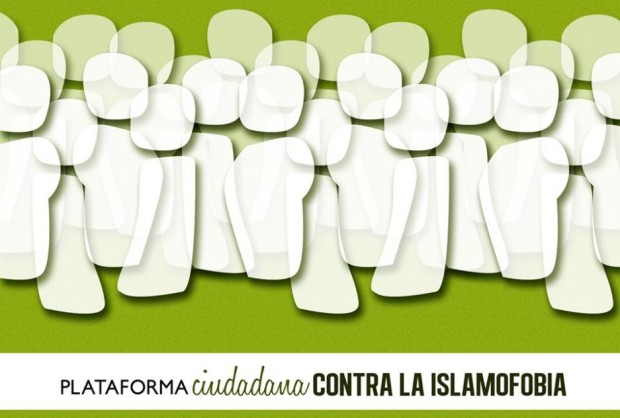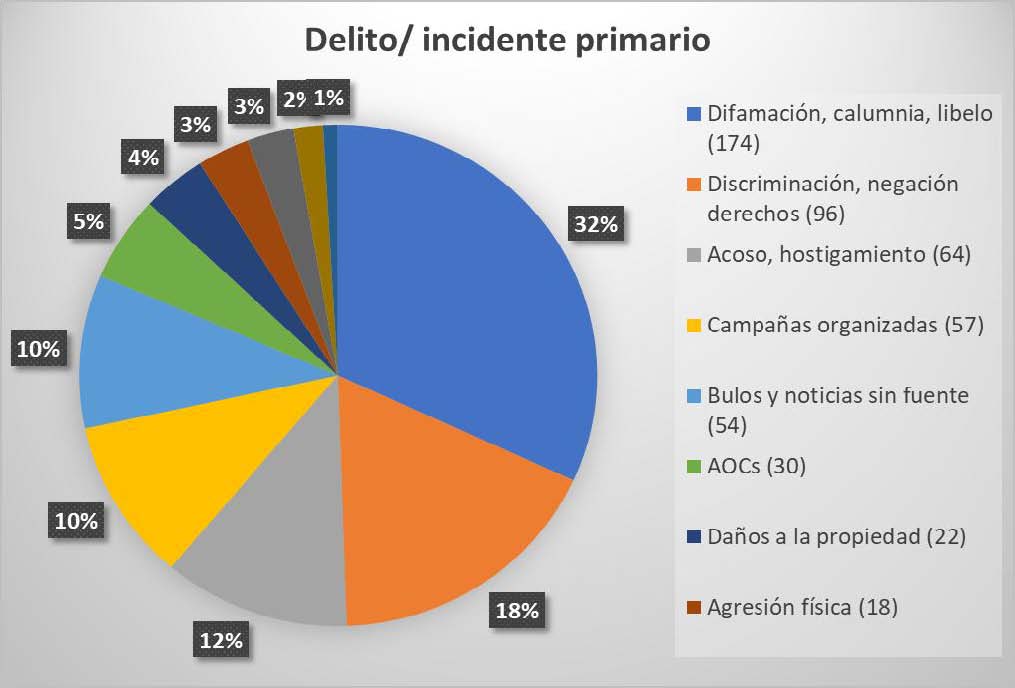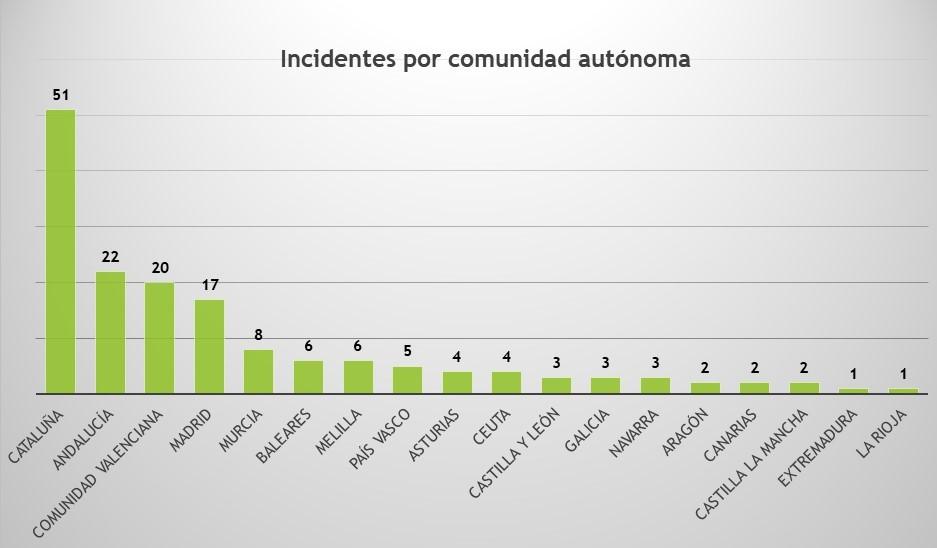The Citizen Platform against Islamophobia (PCCI) just published its last “Annual Report on Islamophobia in Spain 2017”. In the report, this Platform, which is part of our Twistislamophobia network, offers a diagnostic of the current state of islamophobia in the country. It gathers the most noticeable events and systematizes the main discriminatory tendencies and existing hate crimes.
In total, the Platform has registered 546 cases of islamophobia: 160 offline cases and 386 online cases. The numbers provided ignore the “minor” incidents that happen on daily basis (comments, looks, pushes…), which have a strong impact on the people suffering from this kind of discriminations. Likewise, as explained in the Report, although online cases are labeled as “low intensity” cases, they should not be trivialized, as their daily accumulation can have a very negative impact on the Muslim community and their coexistence with the rest of the population.
In an international context influenced by the different terrorist attacks committed by Daesh in Europe, the report notices a rise of ciberhate and the islamphobic discourse among politicians and the media. These often rely on arguments defending the clash of cultures, and even a clash between religions, as well as denying the Islamic heritage in Spain.
Likewise, in Twistislamophobia we have often insisted on the important responsibility held by the media as generators of opinion and trends among the population. From this perspective, the PCCI reports the following wrong behaviors by the media:
- Linking Islam and terrorism.
- Lack of sources or links in very grave accusations.
- Abundance of generalizations.
- Constant stigmatization of Muslims in the headlines, through the use of the terms “second” and “third” generation to refer to immigrants from majority Muslim countries.
- Treating the two million Muslims living in Spain as foreigners.
- Lack of knowledge or information on the collaboration agreements signed between the State and the Spanish Islamic Commission in 1992. The services covered by the agreement, such as halal menus or religious lessons in the schools, are usually presented as “demands by the Muslim community”.
From the opposite perspective, the report also points out to the debate on a more controlled social media, directed to reducing online hate crimes, as well as the publication in the media of court decisions on hate crimes, something uncommon until now.
Good practices
Finally, the report also gathers the good practices promoted by the administrations and State bodies with the aim of preventing hate crimes and normalizing the situation of Muslims living in the country.
Among them, they point out to the creation of Hate Crime Units, or Units of Diversity Management (UGD, according to the Spanish term); the recommendations made by regional governments to prevent the ban of hijabs in schools; the development of a survey for hate crime victims by the Ministry of Interior, with the purpose of learning more on its causes and consequences; the raising awareness campaigns promoted by Valencia and Barcelona; and the implementation of the school subject “Tolerance and Respect” in high schools.
You can read the report below (in Spanish):
















































No Comments